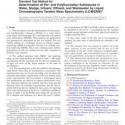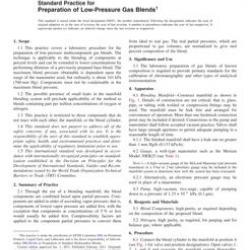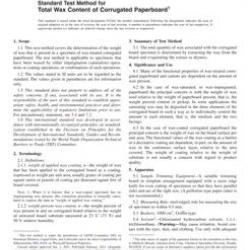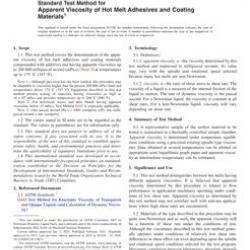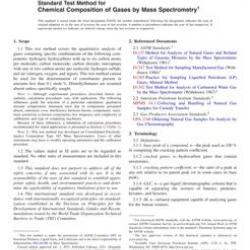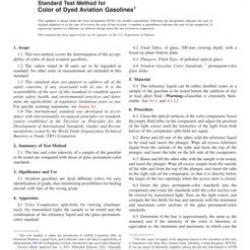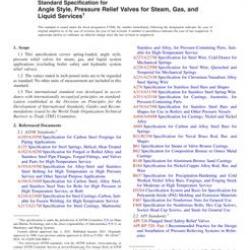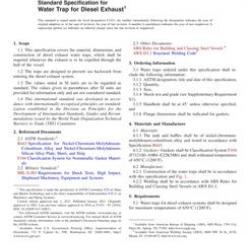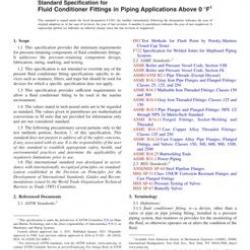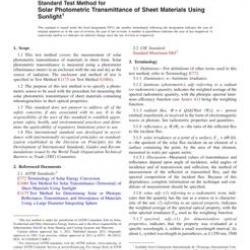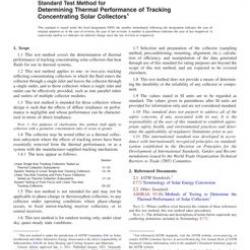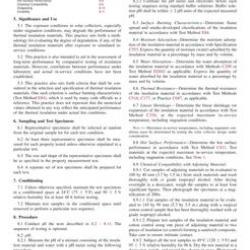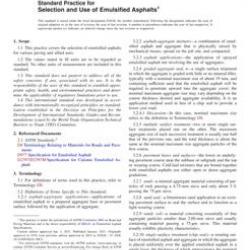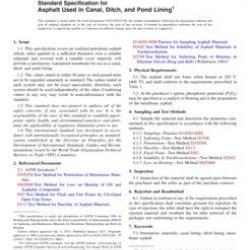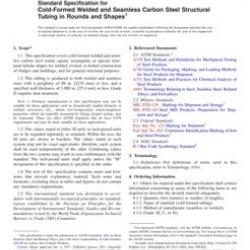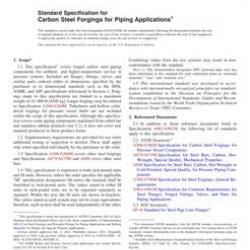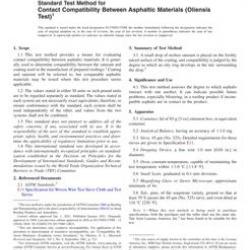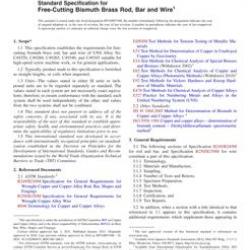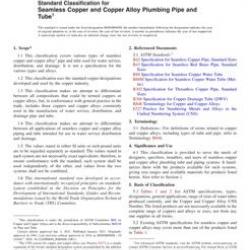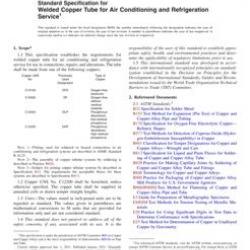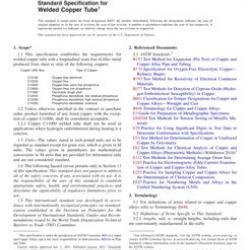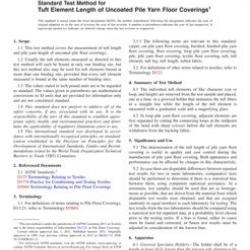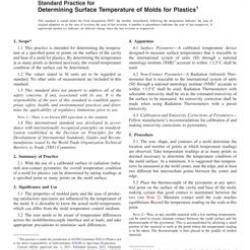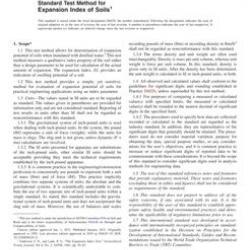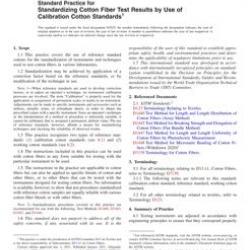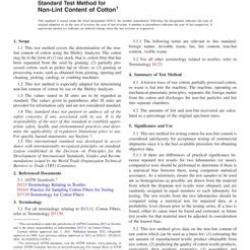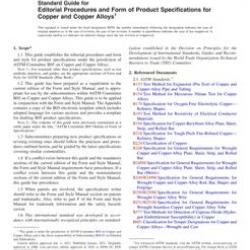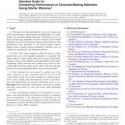No products
ASTM D7979-20
ASTM D7979-20 Standard Test Method for Determination of Per- and Polyfluoroalkyl Substances in Water, Sludge, Influent, Effluent, and Wastewater by Liquid Chromatography Tandem Mass Spectrometry (LC/MS/MS)
standard by ASTM International, 08/15/2020
Full Description
1.1This procedure covers the determination of selected per- and polyfluoroalkyl substances (PFASs) in a water matrix using liquid chromatography (LC) and detection with tandem mass spectrometry (MS/MS). These analytes are qualitatively and quantitatively determined by this test method. This test method adheres to a technique known as selected reaction monitoring (SRM) or sometimes referred to as multiple reaction monitoring (MRM). This is not a drinking water method; performance of this test method has not been evaluated on drinking water matrices.
1.2The method detection limit (MDL)2 and reporting range3 for the target analytes are listed in Table 1. The target concentration for the reporting limit for this test method was 10ng/L for most of the target analytes at the time of development.
1.2.1The reporting limit in this test method is the minimum value below which data are documented as non-detects. The reporting limit may be lowered providing your lab meets the minimum performance requirements of this test method at the lower concentrations, this test method is performance based and modifications are allowed to improve performance. Analyte detections between the method detection limit and the reporting limit are estimated concentrations and are not reported following this test method. In most cases, the reporting limit is the concentration of the Level 1 calibration standard as shown in Table 4 for the PFASs after taking into account the 50% dilution with methanol. It is above the Level 1 calibration concentration for FHEA and FOEA, these compounds can be identified at the Level 1 concentration but the standard deviation among replicates at this lower spike level resulted in a higher reporting limit.
1.3The values stated in SI units are to be regarded as standard. No other units of measurement are included in this standard.
1.4This standard does not purport to address all of the safety concerns, if any, associated with its use. It is the responsibility of the user of this standard to establish appropriate safety, health, and environmental practices and determine the applicability of regulatory limitations prior to use.
1.5This international standard was developed in accordance with internationally recognized principles on standardization established in the Decision on Principles for the Development of International Standards, Guides and Recommendations issued by the World Trade Organization Technical Barriers to Trade (TBT) Committee.


